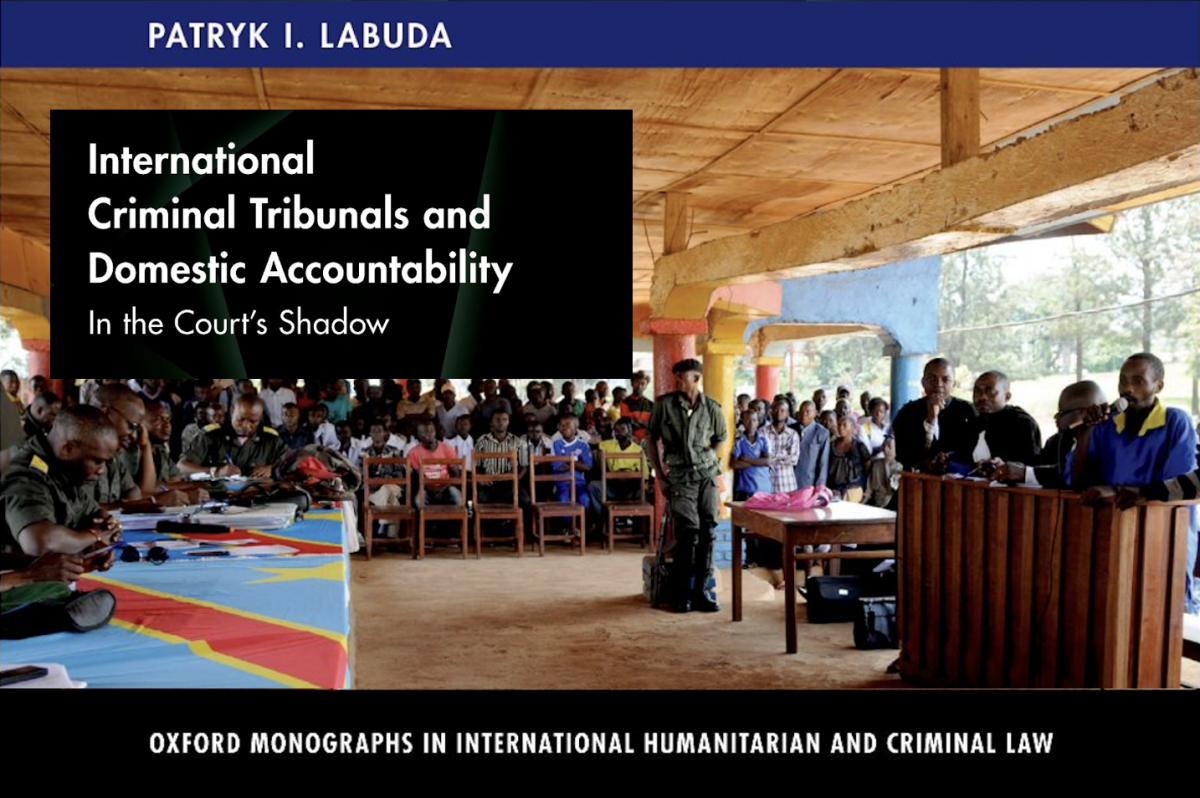Introducing the Book Review Symposium on ‘International Criminal Tribunals and Domestic Accountability’
The notion of strengthening and advancing international criminal justice and its respective institutions and mechanisms has been all over the place in recent months and years: amongst others, the Syrian civil war, Russia’s war of aggression against Ukraine, and – most recently – the war in Gaza following Hamas’ heinous attack against Israel have sparked academic as well as public discussions about how to safeguard accountability for international (core) crimes and adjust the fight against impunity.
Patryk Labuda’s new book ‘International Criminal Tribunals and Domestic Accountability’, published with Oxford University Press in mid-2023, attends to these highly contemporary topics by employing both a distinct interdisciplinary and ‘hands-on’ perspective, thereby making extensive use of the author’s practical experience in the field, particularly in the context of the conflicts in Rwanda, the Democratic Republic of the Congo, and Sierra Leone. Based on these insights, the book undertakes a deliberate attempt to propose a ‘bottom-up’ approach towards the study of international criminal law and its institutions, while also providing a distinct perspective on the contemporary state of play with a view to one of the regime’s most fundamental pillars, the principle of complementarity.
Against this backdrop, Völkerrechtsblog is excited to host the present symposium, which comprises six highly relevant and topically diverse contributions, written by esteemed colleagues, many of whom ‘share’ Patryk Labuda’s approach towards the topic to the extent that they have not only excelled as academics, but likewise gathered versatile experience in the field. Each of these contributions will address distinct facets of the book, to which the author will conclusively respond towards the end of this week.
Later today, Elena Baylis kicks off the symposium by suggesting that International Criminal Court and tribunals should be evaluated as one amongst various factors of a broader international criminal law environment, essentially committed to transitional justice.
On Tuesday, Genevieve Bates more closely engages with the notion of complementarity, thus contextualizing this bedrock principle of international criminal law vis-à-vis the oftentimes complex realities on the ground, including with a view to domestic developments that need to be accounted for. Subsequently, Elise Keppler shifts the focus towards the International Criminal Court and discusses its unique and advancing role in prompting domestic accountability.
On Wednesday, Daniele Perissi and Guy Mushiata take us on a journey through the Congolese accountability ecosystem, proposing an interpretative framework that goes beyond Labuda’s propositions, hence accommodating certain ‘lessons learned’ from the Congolese model. Following that, Stephen Rapp provides a comprehensive and personal narrative of providing complementarity on a regional level by focusing on the approach of the Extraordinary African Chambers.
On Thursday, Kalika Mehta further expounds on the International Criminal Court’s very own interpretation of and approach towards complementarity and further addresses the notion of selectivity within (at least some of) its procedures. Following that and thereby concluding the symposium, Patryk Labuda will offer his response towards the various contributions.
We at Völkerrechtsblog would like to extend our thanks to the authors for their participation and their insightful contributions, to Oxford University Press for making chapters two and seven of Patryk Labuda’s volume available open access for the coming three months, and to those colleagues who kindly engaged in reviewing the contributions and providing valuable comments.

Raphael Oidtmann is an Adjunct Lecturer at Mannheim Law School, an external PhD candidate at Goethe University Frankfurt, and an editor at Völkerrechtsblog.
